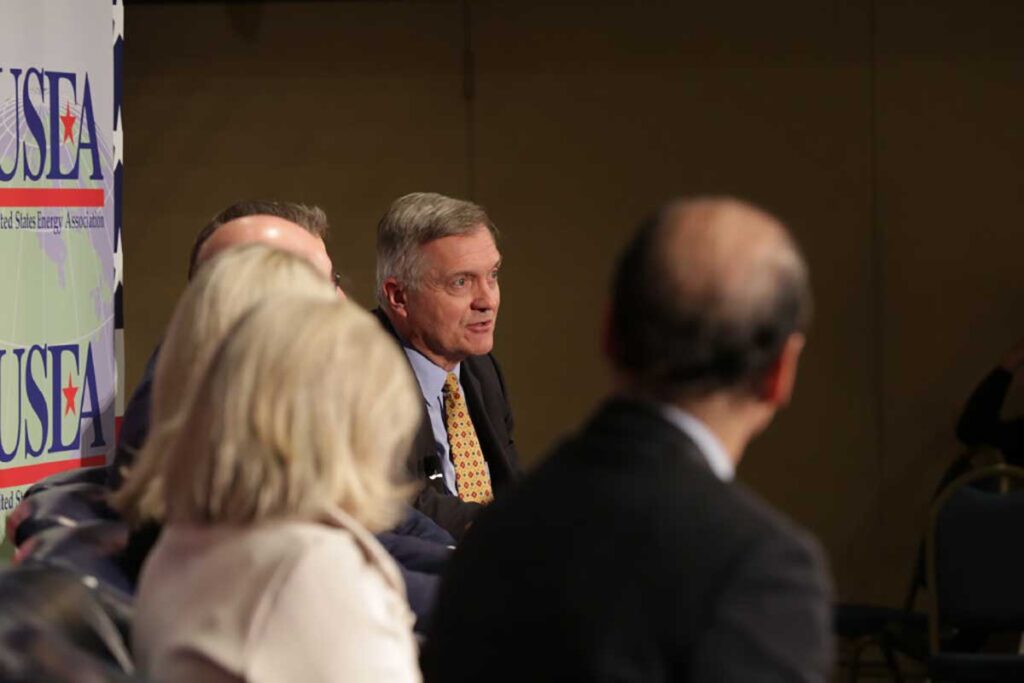
Electric cooperatives are eager to develop resources for enduring reliable and affordable energy, but the federal government must do its part to help keep the lights on with rational public policy for a growing economy, NRECA CEO Jim Matheson told utility leaders in Washington.
“It’s a great time to seize opportunities to be an even better country, and it’s going to require reliable, affordable energy to make it happen,” Matheson said in a discussion on energy use and supply at the U.S. Energy Association’s 20th Annual State of the Energy Industry Forum Jan. 23.
“But we have to acknowledge the risks to meeting that need, and one of the biggest risks is the role of public policy.”
The North American Electric Reliability Corp. has “for the first time ever identified public policy as one of the primary risks in terms of electric reliability, and you can see that playing out now” in the Environmental Protection Agency’s proposed power plant rule, Matheson said.
“We are very concerned about reliability. We are very concerned about premature closure of plants” because of the current regulatory environment, he said.
EPA proposes to eliminate carbon dioxide emissions from coal- and gas-based power plants starting in 2030 by requiring carbon capture and storage and co-firing clean hydrogen at power plants, two technologies still under development.
“That’s an example of public policy going in the wrong direction,” Matheson said. “It relies on technology that is not mature, and it relies on the hope that somehow, they’re going to be in place in time. Hope is not a good strategy, and it sure isn’t good policy.”
In contrast, the U.S. Department of Agriculture’s new $9.7 billion voluntary program designed specifically for electric co-ops turned out more than double the expected participants to build and invest in clean energy resources. Electric co-ops oversubscribed to the Empowering Rural America (New ERA) with $26 billion in project applications that would launch $93 billion in investments across rural America, he said.
“Electric co-ops are answering the call for innovation,” Matheson said. “We are going to continue to be the voice advocating for rational policy in terms of making sure when our members at the end of the line flip the switch, the light comes on, and when the bill comes at the end of the month, they can afford to pay it.”
Cathy Cash is a staff writer for NRECA.